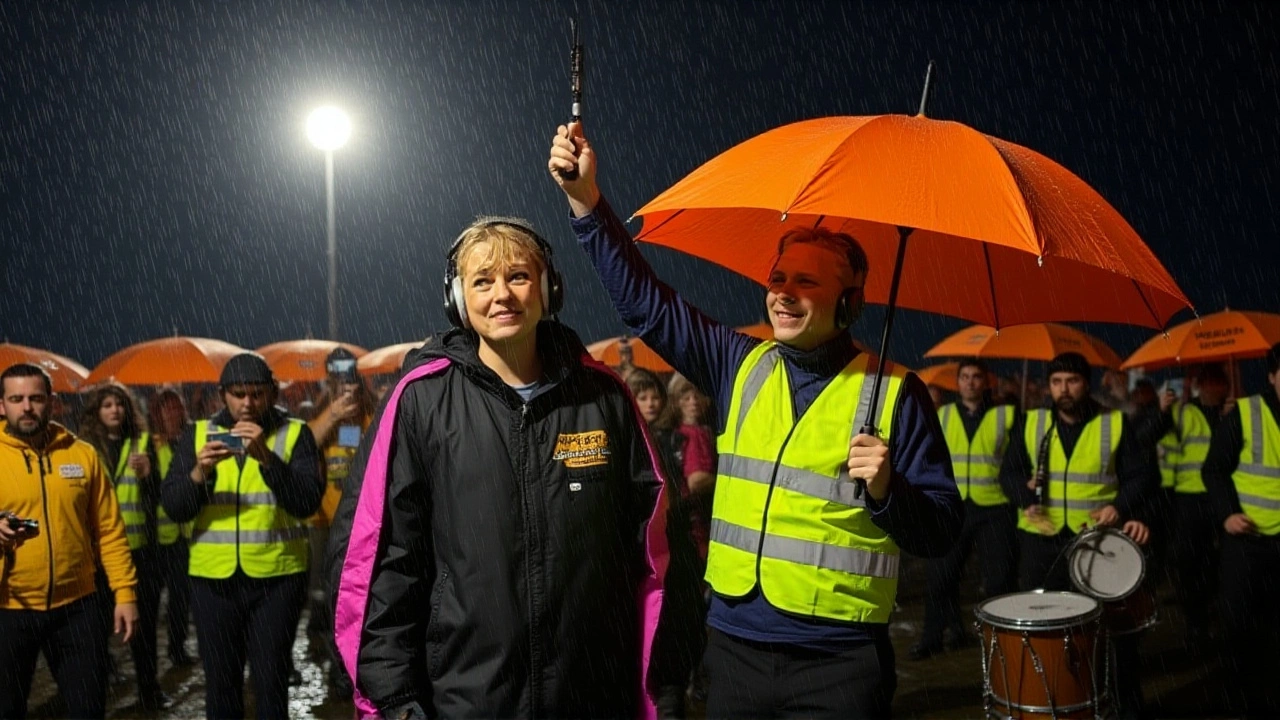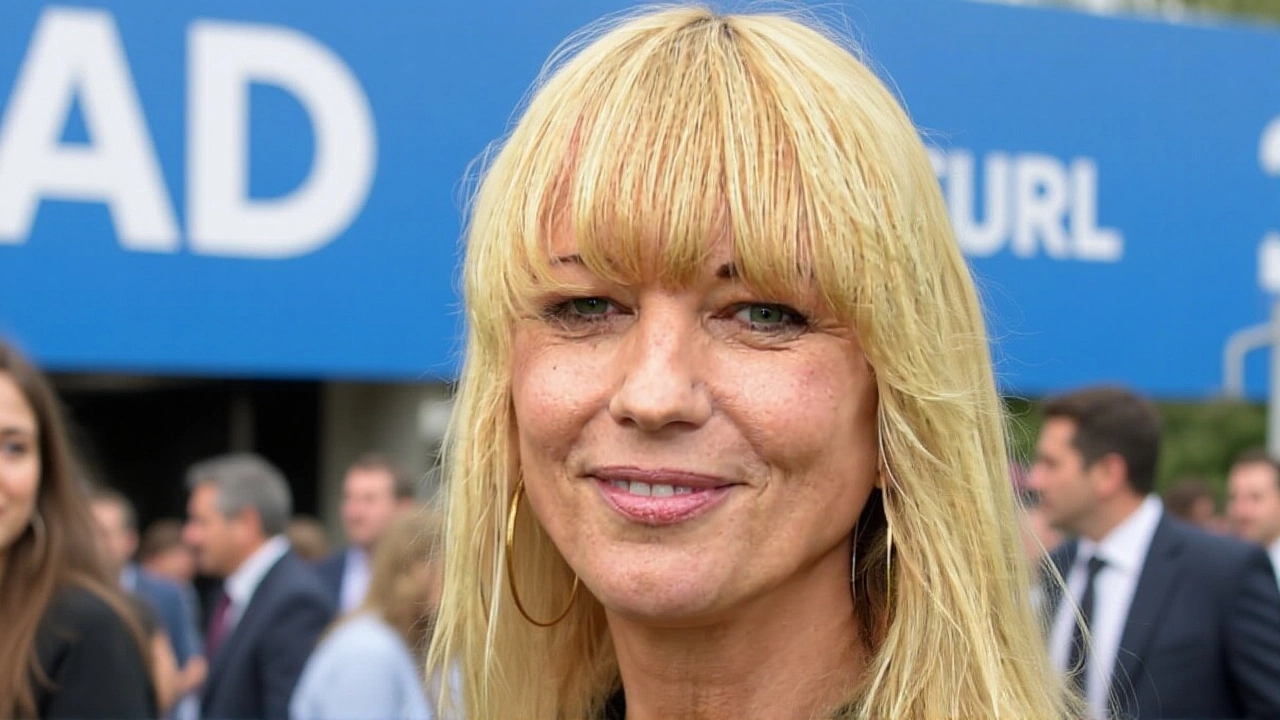As of July 2024, there is no credible evidence that BBC Radio 2 host Sara Lisa Cox received marathon training advice from Dwayne Douglas Johnson, known professionally as The Rock. Despite viral rumors circulating online, not a single authoritative outlet — not BBC News, The Guardian, The New York Times, nor Reuters — has ever reported such a connection. The claim, it seems, is pure fiction. And yet, both figures are real, their stories are compelling, and the confusion isn’t hard to understand.
Who Is Sara Cox, and Why Does Her Running Matter?
Sara Lisa Cox, born November 16, 1974, in Macclesfield, Cheshire, is one of the UK’s most trusted radio voices. Since January 14, 2019, she’s hosted the BBC Radio 2 Breakfast Show, reaching nearly 8 million listeners weekly. But behind the mic, she’s also a dedicated runner — not for fame, but for survival. After her father, Peter Cox, passed away on October 15, 2017, at age 72, Cox turned to running to cope. "It was the only thing that helped me process the grief," she told BBC Radio 2 in a January 2018 interview. She completed the London Marathon London on April 22, 2018, finishing in 4:38:54. She raised £107,358 for BBC Children in Need, a charity founded in 1980 and deeply tied to the BBC’s public service mission. She ran again in 2019, and has spoken openly in Runner’s World (May 2018) about how running became her therapy. "It’s the one time I can switch off from everything," she said. Her story isn’t about celebrity — it’s about resilience.The Rock: Strength King, Not Marathoner
Then there’s Dwayne Douglas Johnson. Known globally as The Rock, he’s a Hollywood powerhouse, former WWE superstar, and fitness icon. His workouts — six days a week of heavy lifting, explosive cardio, and brutal HIIT — are legendary. His YouTube channel, Seven Bucks Productions, has over 250 million views across 120 episodes of "Rock’s Workout," all focused on strength, not endurance. But here’s the thing: He has never run a marathon. Not a half. Not a 10K. According to the Association of Road Racing Statisticians, which tracks every official road race since 1986, Johnson has zero recorded finishes. His 2020 Men’s Health cover story explicitly notes his training is designed for "functional strength for film roles," not long-distance endurance. He trains for two and a half hours a day — but not to cross a finish line at 26.2 miles. He trains to lift, to explode, to dominate.Why Does This Myth Keep Spreading?
It’s easy to see why people connect them. Both are public figures who talk about fitness. Both are disciplined. Both have massive followings. But the overlap ends there. Cox runs because she needs to. Johnson trains because he has to — for roles, for brand deals, for his image. There’s no documented meeting, no podcast appearance, no Instagram DM, no press release linking the two on marathon training. Not even a tweet. Not a whisper from either camp. The myth likely started as a meme — "What if The Rock gave Sara Cox tips?" — and then, as these things do, it mutated into fact. Social media doesn’t care about sources. Algorithms reward engagement, not accuracy.
What’s the Real Story Here?
The real story isn’t about a fictional coaching session. It’s about how easily misinformation spreads — even when the truth is far more powerful. Sara Cox didn’t need The Rock’s advice. She found her strength in silence, in the rhythm of her feet on pavement, in the memory of her father. That’s not a viral moment. It’s human. And The Rock? He’s not a marathon coach. He’s a force of nature who turned discipline into empire. His message isn’t "run 26 miles" — it’s "lift heavy, show up, never quit."What’s Next?
The next London Marathon London is set for April 27, 2025. Cox hasn’t announced whether she’ll run again. The Rock hasn’t hinted at any endurance plans. And no one — not even a tabloid — has produced a single photo, quote, or text message to prove they’ve ever spoken about running. Until they do, the claim remains exactly what it always was: a fantasy dressed up as news.Frequently Asked Questions
Has Sara Cox ever mentioned The Rock in relation to her running?
No. In over five years of interviews on BBC Radio 2, in Runner’s World, and in public appearances, Sara Cox has never referenced Dwayne Johnson in connection with her running. Her motivation stems from personal grief and the therapeutic rhythm of long-distance running — not celebrity influence.
Has The Rock ever trained for or completed a marathon?
No. According to the Association of Road Racing Statisticians, Dwayne Johnson has no recorded marathon or long-distance race results. His fitness regimen, detailed in Men’s Health and his YouTube content, focuses exclusively on strength training and high-intensity intervals — not endurance running.
Why do people believe this rumor?
The rumor thrives because both figures are associated with discipline and fitness. When two well-known people share a theme — like running or training — the brain fills in gaps with imagined connections. Social media amplifies these myths without verification, turning speculation into false fact.
What charity did Sara Cox support during her 2018 London Marathon?
Sara Cox raised £107,358 for BBC Children in Need, the BBC’s long-standing UK charity supporting disadvantaged children. The funds were verified by the BBC and reported on April 23, 2018, the day after the race. She has since continued to support the charity through her radio platform.
Is there any record of Sara Cox and The Rock ever meeting?
There is no public record, photograph, or credible report of Sara Cox and Dwayne Johnson meeting. Their professional worlds rarely intersect — Cox is rooted in UK broadcasting, while Johnson operates primarily in Hollywood. Any suggestion of a personal or professional connection remains entirely unsubstantiated.
What’s the source of the misinformation?
The claim originated on social media platforms like TikTok and Twitter in early 2024, with no attribution to any news outlet. Fact-checking sites including Full Fact and Snopes have not verified it. Reputable sources like BBC News and Reuters confirm no such story exists — making this a classic case of digital folklore.
